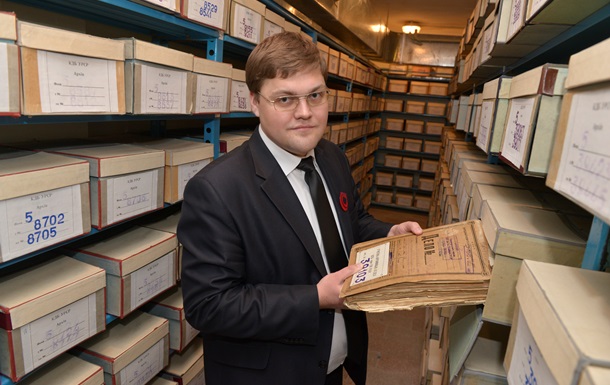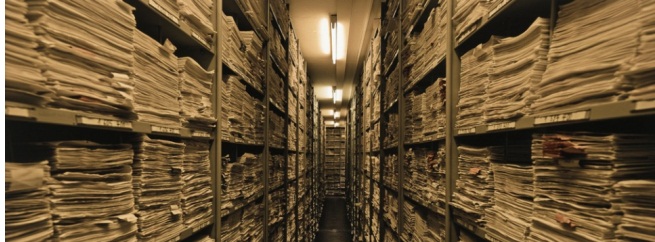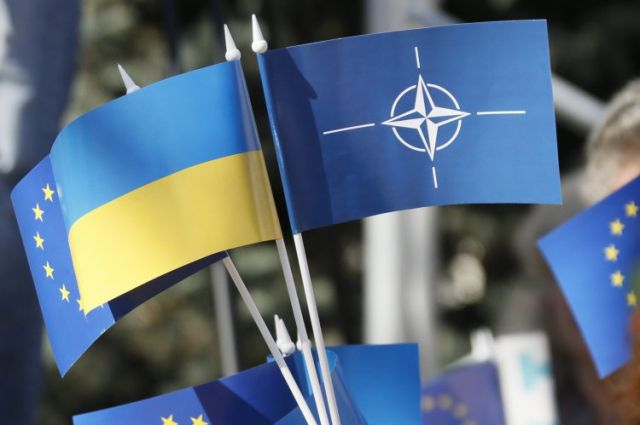For almost a year since the “decommunization laws” have entered into force, all the documents of repressive Soviet special service agencies in Ukraine's archives have been available to all, free of charge.
Read also: Summary of Ukraine’s four new decommunization bills
We spoke about this with Ihor Kulyk, Managing Director for Development of National Memory Policy, of the Institute of National Memory.

In addition, today in Ukraine, a volunteer-led electronic archive of the national liberation movement is active at avr.org.ua. It holds over 20 thousand electronic copies of documents about Ukraine's historic liberation movement of the 20th century, as well as KGB materials. This electronic archive is a joint project with the Center for Research on the Liberation Movement, Ivan Franko National University of Lviv and the Lontskoho Street Prison National Museum.
It was previously reported that the Czech Republic would reprint online versions of the minutes of the security services of the Czech Ministry of Internal Affairs and intelligence and counter-intelligence reports. Patrons will also be able to view the Czech State Security leadership documents relating to the Communist coup of February 1948, as well as the actions of security agencies following the death of Czechoslovakian President Klement Gottwald.
Ukraine, in accordance with the law For access to the archives of repressive agencies of the Communist totalitarian regime of 1917-1991, is currently in the process of transferring the archives of the Soviet secret police agencies from the Security Service, Interior Ministry, Defense Ministry and other military and civil defense structures to the Public Archive of the Ukrainian National Memory Institute.
“Today, Ukrainian police and defense structures are undertaking a revision of their archives to determine which documents of repressive Soviet organizations exist dating to 1917-1991. They must transfer the archives to the National Memory Institute by May 21 of next year. We are simultaneously securing all the requirements for the new branch of the national archive of the Ukrainian National Memory Institute,” said Ihor Kulyk.
The Center for Research on the Liberation Movement reports that there is active collaboration between the Archive of the Ukrainian Security Service and its Czech partners – the National Defense Service Archives and the Institute for the Study of Totalitarian Regimes. In particular, the preparation and publication of the document collections “The Czech Operation and its Consequences (with 1937-1941 NKVD documents of the Ukrainian SSR)” and “OUN and UPA in Czechoslovakian Special Service documents (1944-1959).”
The Czech side is transferring documents relating to the actions of Czechoslovakian special service agencies against the Organization of Ukrainian Nationalists, while the Ukrainian side is transferring archival material regarding criminal cases against former residents of Czechoslovakia repressed by the Soviet totalitarian regime.
The law For access to the archives of repressive agencies of the Communist totalitarian regime of 1917-1991 was developed with public participation within the framework of the Open Archives program of the Center for Research on the Liberation Movement, with the support of the International Renaissance Foundation. Proponents are convinced that this step will not only help to deepen understanding about the nation's history, but will help safeguard against the return of totalitarian practices in the work of law enforcement and special service agencies in independent Ukraine.
Following the collapse of the Communist regime, Poland, the Czech Republic, Bulgaria, Slovakia, the Baltic nations and other Central and Eastern European nations have made the secret documents of correctional institutions and secret police accessible, and have passed them on to civilian authorities like the National Memory Institute.
Read also: Ten myths about decommunization in Ukraine





